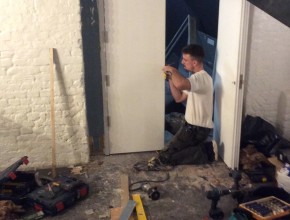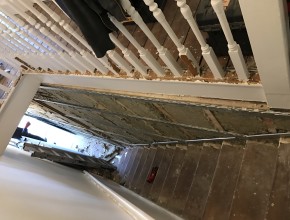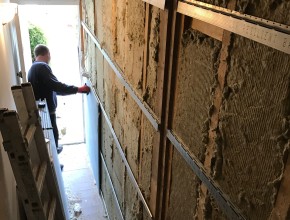Getting The Local Authorities Involved:
Keep a Record of Disturbances
Before involving your local authority, it makes sense to gather a body of evidence which you present to them as proof of the types of disturbances you are experiencing.
Note down the time of a disturbance, its length, and its nature.
If there is a reason for you neighbours making noise at that time, for example a dog barking because it is locked outside at night, then note this down too.
Once you have a decent body of evidence to show the extent of the nuisance your noisy neighbours are causing, you can contact your local authority or council.
Contact your Council
Within most councils, the environmental health department or city living department will have a dedicated contact for antisocial noise related issues. Some councils have a dedicated staff of Environmental Health Officers, who are able to issue warnings and on-the-spot fines to noisy neighbours who do not cease making noise. Failure to pay such fines can result in prosecution and a further £1,000 fine.
What The Law Says
Under the Environmental Protection Act 1990, councils are obliged to take reasonable steps to investigate complaints of nuisance noise (and other types of nuisance such as littering or emissions) made by residents. The same law states that where the local authority believes that a nuisance is present, it must serve an ‘abatement notice’ on the individual responsible. The abatement notice can forbid the nuisance altogether, or restrict it to certain times of day.
If the person creating the nuisance cannot be found, the notice is served on the owner or occupier of the property from which the nuisance is coming. Failure to obey the abatement notice is a criminal offence and can result in a fine of £5,000.
In considering whether a nuisance is taking place, the council will consider (1) the nature and location of the noise, (2) the time and duration of the noise and (3) whether the activity creating the noise has any value.
‘Nuisance’
In England and Wales, ‘nuisance’ is defined legally as an unreasonable interference with the use and enjoyment of one’s property. In deciding this, consideration of the standards of the average person, and the character of the neighbourhood in question (such as whether other residents who are affected have also complained) will be taken.
Confusingly, the definition of nuisance in Scotland is not the same as England and Wales. The definition in Scotland requires that the behaviour is both unreasonable and causes discomfort. Reasonableness is judged with regard to an imaginary ‘reasonable person’ – would they be affected by the level of noise being created?
There is no level of volume which must be met for a noisy neighbour’s behaviour to be considered a nuisance. The standard is subjective and the assessment made by the local authority will be subject to the individual assessor. This is another reason why keeping a diary of noisy behaviour by neighbours is important – it can lend weight to your case.
Solutions for Noisy Neighbours
Having noisy neighbours can be very unpleasant, but if you are informed you can do something about it. We recommend the following points of advice:
- If you feel safe enough to do so, try to make personal contact. Many times you will find that your neighbours had no idea they were causing a nuisance.
- If you prefer to keep a distance, use an anonymous letter or note. Be amiable, and try to let your neighbour see things from your perspective – if they are reasonable people they are likely to appreciate that everyone needs sleep!
- Collect evidence. If your efforts at informing your neighbours that they are causing a nuisance are unsuccessful, you will benefit from having a diary of their noisy behaviour when you contact the authorities.
- Be safe. When in doubt, do not engage your noisy neighbours – if you fear that they might escalate the situation into something beyond just noise making, or you feel frightened, bullied or intimidated, then contact the police rather than putting yourself into a potentially unsafe situation.




